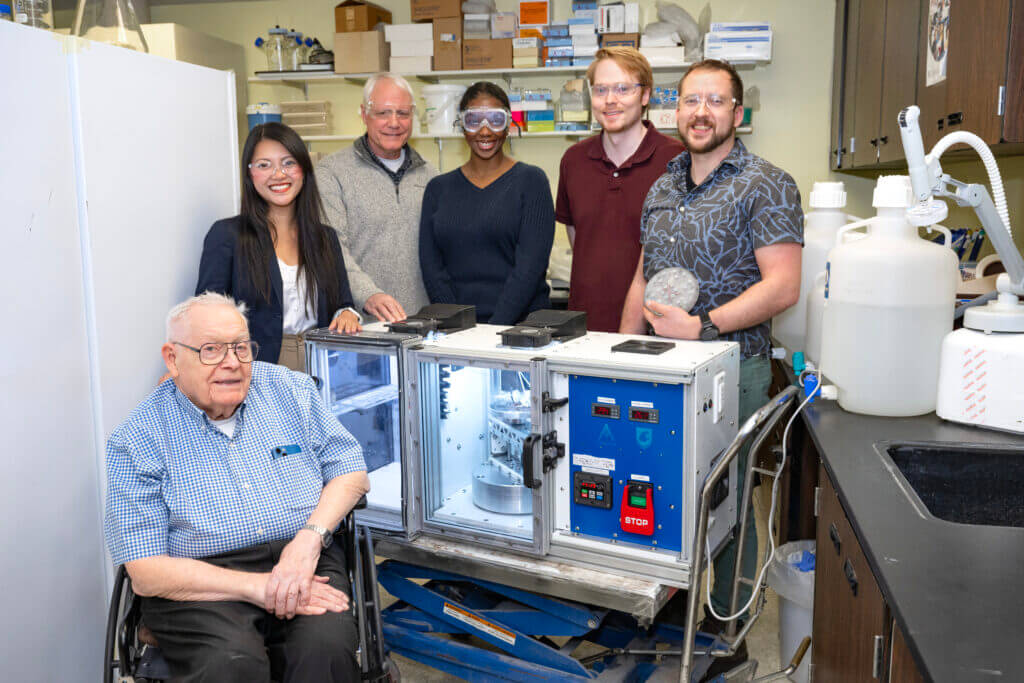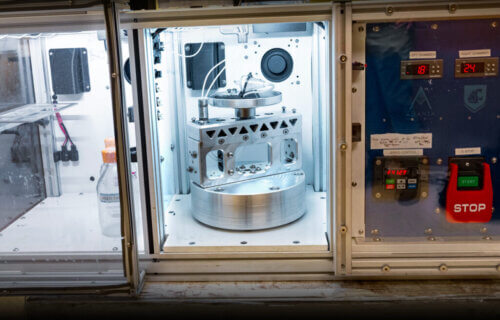PULLMAN, Wash. — There’s a revolutionary new treatment on the horizon that may help defeat cancer. Washington State University (WSU) researchers have developed a bioreactor that can rapidly manufacture cancer-killing white blood cells, known as T cells.
This innovation has the potential to advance the availability of immunotherapy for patients, a promising cancer treatment that harnesses the body’s immune system to combat cancer cells.
WSU researchers have unveiled a mini fridge-sized bioreactor capable of producing T cells at an astonishing rate of 95 percent of the maximum growth rate, approximately 30 percent faster than existing technologies. The bioreactor was initially developed using T cells from cattle, but scientists anticipate that it will perform similarly when working with human cells.
In 2022, there were more than 1,400 various therapies involving T cells in development, with the FDA approving seven of them for a range of cancer treatments. Despite its promise, the use of this therapy, known as chimeric antigen receptor T cell (CAR-T), has been limited due to the high cost and time required to cultivate T cells. Each infusion treatment for a cancer patient necessitates up to 250 million cells.
“The manufacturing demand for this growing number of therapies is not being met, so there is a gap that needs to be filled in terms of biomanufacturing solutions,” says study first author Kitana Kaiphanliam, a postdoctoral researcher in WSU’s Gene and Linda Voiland School of Chemical Engineering and Bioengineering, in a university release. “At the end of the day, they need to be upscaled, so they can be used by more people.”

The innovative bioreactor employs centrifugal force to influence the growing cells while they are suspended as a dense cloud, continuously immersed in a nutrient-containing medium. This prototype is the culmination of four decades of research into designing a centrifugal bioreactor to swiftly condense and expand cells.
The latest prototype is self-contained within a sterile cabinet, functioning as a biosafety cabinet. This feature enables its use in settings where clean manufacturing facilities may not be readily available, potentially democratizing access to cell-based therapies.
WSU researchers have plans to enhance the bioreactor further. They aim to incorporate multiple chambers, with the goal of eventually producing enough cells in three days to provide three doses of therapy. Human T cell testing is also on the horizon, with discussions underway with cancer researchers at the Fred Hutchinson Cancer Center. Additionally, Kaiphanliam and study co-author Brenden Fraser-Hevlin have launched Ananta Technologies Inc., a company aimed at producing and marketing this groundbreaking technology.
“I recognized the potential that this bioreactor could have on cell-based therapies and manufacturing for these therapies, and I didn’t want to see it stuck in an academic laboratory,” notes Kaiphanliam. “I really hope having novel technologies to help with manufacturing reduces that financial barrier for these life-saving therapies.”
The project received substantial funding from a National Science Foundation Early-Concept Grant for Exploratory Research (EAGER) award. Additional support came from the WSU Office of Commercialization’s Gap Fund, the Palouse Club Cougar Cage pitch competition, and the Washington Research Foundation. To safeguard the associated intellectual property and enhance the technology’s commercial value, the Office of Commercialization has filed a pending U.S. patent application.
The study is published in the journal Biotechnology Progress.
You might also be interested in:
- ‘Immune resilience’ may hold the key to a longer life, study reveals
- First-of-its-kind cancer treatment tricks tumors into not spreading
- Game-changing cell therapy significantly cuts risk of death from COVID-19
- Best Vitamins For Your Immune System: Top 5 Most Recommended By Health Experts


Now you can fight cancer and have a place to safely store your lunch at the same time!